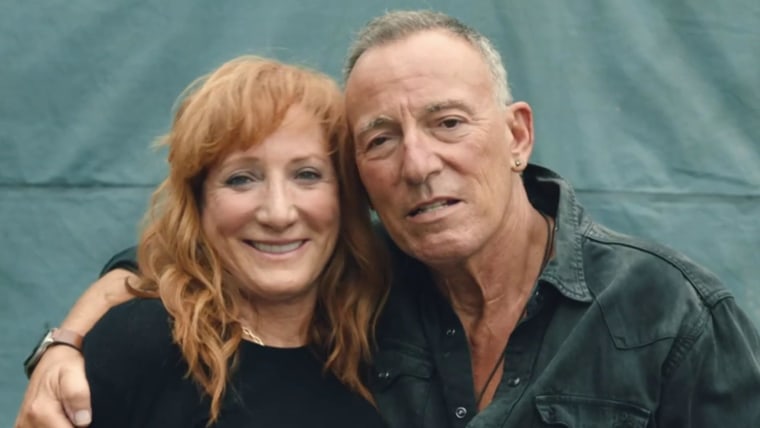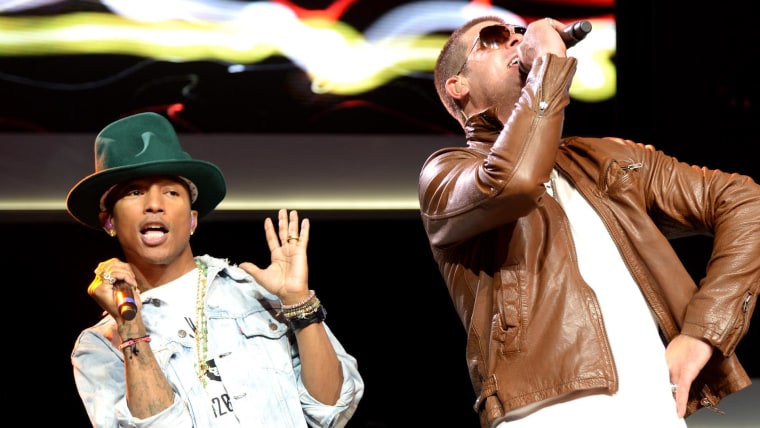When President Donald Trump takes the Republican National Convention stage Thursday night, there’s no telling which classic rock and roller he’s going to piss off. The venues and themes of Trump’s campaign events may change, but his ability to upset America’s iconic rockers remains a constant.
For years, Trump has raised the ire of numerous music legends for using their music at his campaign rallies and events. His song choices seem generally selected to either prop up his fragile ego or, as we witnessed at rallies in Tulsa and Arizona this summer, to seemingly bolster excitement about a flagging campaign.
When President Donald Trump takes the Republican National Convention stage Thursday night, there’s no telling which classic rock and roller he’s going to piss off.
Back in 2015 and 2016, Trump incongruously used to play R.E.M.s “Everybody Hurts,” as well as Elton John’s “Tiny Dancer” and “Funeral for a Friend/Love Lies Bleeding” – hardly fist-pumping anthems – at his rallies, at the time eliciting mostly scoffs and heckles. John himself seemed little more than miffed, telling the Guardian at the time, “I’ve met Donald Trump, he was very nice to me, it’s nothing personal, his political views are his own, mine are very different, I’m not a Republican in a million years.”
Still, the star added, addressing Trump directly, “Why not ask Ted f—— Nugent? Or one of those f—— country stars? They’ll do it for you.”
Of course, that was back when no one took the idea of a Trump presidency seriously.
But this time, after nearly four years of regressive, divisive politics the likes of which this country hasn’t seen since probably President Andrew Jackson’s days, and a lack of leadership in the face of a trio of crises, artists are speaking out against Trump in increasing numbers and in far more pointed ways.
Want more articles like this? Follow THINK on Instagram to get updates on the week’s most important cultural analysis
“This is NOT ok with me,” Neil Young, the man who launched his career on the back of one of the most powerful protests songs ever, tweeted July 3 after Trump used his anti-Reagan/Bush era anthem “Rockin’ In The Free World” as exit music for his campaign’s controversial Mount Rushmore event. “I stand in solidarity with the Lakota Sioux & this is NOT ok with me,” Young added.
Republicans have long frustrated musicians, by and large a progressive bunch, by using their music to pump up excitement at campaign rallies. Still, this moment feels different. No longer does the use of a song at a campaign rally simply get a press release in response, perhaps because, in so many ways, Trump stands in such stark contrast to all those who have come before him.
“With 100,000-plus Americans dying over the last few months, and the empty, shamed response from our leaders, I’ve been simply pissed off,” Bruce Springsteen, long a thorn in the side of both Republican administrations and many of his right-leaning, working class fans, said recently on SiriusXM’s E Street Radio. “Those lives deserve better than just being inconvenient statistics for our president’s re-election efforts. It’s a national disgrace.”
Taking aim at Trump personally, Springsteen, whose “Born In The USA” has been used by countless politicians to soundtrack their rallies, added, “To the man sitting behind the Resolute Desk: With all respect, Sir, show some consideration and care for your countrymen and your country. Put on a f—— mask.”
No longer does the use of a song at a campaign rally simply get a press release in response.
In the 1980s, Springsteen railed against President Ronald Reagan’s use of “Born in the USA” at political rallies. While on the surface the song may seem patriotic, Springsteen’s ballad of a broken and disillusioned Vietnam War vet is really a quintessential protest song. But as baffling as that choice was, Trump’s choices have been even more confusing.
Trump has long favored using the Rolling Stones’ “You Can’t Always Get What You Want,” a song about opulence, decadence and drug use, at his rallies. What exactly is Trump trying to say through his use of the 1969 classic? Like many of the things Trump does, it’s weird and more than a little absurd. It makes you wonder if Trump, who apparently personally picks the music played, has ever truly listened to the lyrics. Perhaps it’s an “owning the libs” thing, using the songs by artists long associated with progressive causes; a provocation aimed at the Stones and their more liberal fans.
The Stones, of course, are threatening to sue Trump.
“The BMI have notified the Trump campaign on behalf of the Stones that the unauthorized use of their songs will constitute a breach of its licensing agreement,” the band said in a statement, referring to the performing rights organization that issues blanket licenses to venues for the use of music, but which recently created a carve-out for artists to prevent the use at political events. “If Donald Trump disregards the exclusion and persists, then he would face a lawsuit for breaking the embargo and playing music that has not been licensed.’’
The Stones also complained during Trump’s 2016 campaign about the use of their music to fire up his conservative base at rallies, to no avail. But Trump’s use of ”You Can’t Always Get What You Want,” and the new carve-out provision in BMI’s license, gives the legends better standing this time around.
“Some people love songs and they don’t even really know the words to them, or if they’ve sung them a thousand times, they’ve never stopped and thought about them,” the U.K. rock and roll icon Paul Weller told me recently, after railing anew at how, when the Eton-educated David Cameron was British prime minister, he’d proclaimed Weller’s punk-era anti-Eton screed “Eton Rifles” one of his favorite songs. “So there’s what I intend in a song, but then there’s what people take from it, which I have no control over.”
This makes some sense. Tom Morello, Chuck D. and even the Village People have had to point out to fans who threaten to boycott their music that they’ve always been against the sort of troublesome race-baiting that Trump peddles so freely.
And then there’s Tom Petty’s “I Won’t Back Down.”
In Tulsa in July, in front of a less than full arena of less than enthusiastic fans, and facing growing protests both outside the arena and across the country (and the globe), Trump basked in the glow of Petty’s 1989 back-against-the-wall, working man anthem.
Petty’s estate wasn’t amused.
“Tom Petty would never want a song of his used for a campaign of hate,” the singer’s family said in a statement within hours of Trump leaving the stage. “Tom wrote this song for the underdog, for the common man and for EVERYONE. We want to make it clear that we believe everyone is free to vote as they like, think as they like, but the Petty family doesn’t stand for this. We believe in America, we believe in democracy. But Donald Trump isn’t representing the noble ideals of either.”
Right-wing Petty fans took to social media to cry foul, but Petty, in fact, vehemently renounced what he recalled as “downright stupid” his use of the Confederate flag as a stage prop in the mid-80s. “I love my electric guitar but if it played a role in killing children, and someone asked me not to use it, I would gladly hand it over and play acoustic,” he once told me, comparing his feelings about music with those who refuse to ban semi-automatic weapons. Clearly, Petty was no sympathizer for the sort of divisive, racist, neo-authoritarian demagoguery Trump has made his calling card.
Lawsuits or not, Trump will no doubt continue to use songs against wishes of the long list of artists who have decried his use of their work, and will no doubt revel in the controversy. It’s what he does. Fortunately, there’s probably no amount of reflected glory that can save the sinking ship that is Trump 2020.
Related:













